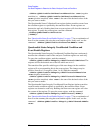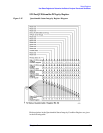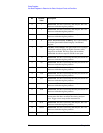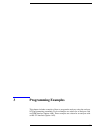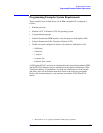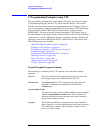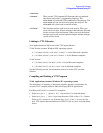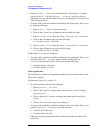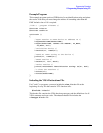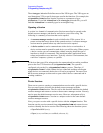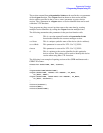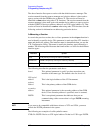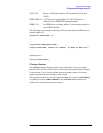
96 Chapter 3
Programming Examples
C Programming Examples using VTL
C Programming Examples using VTL
The programming examples that are provided in this guide are written using the
C programming language and the VTL (VISA transition library). This section
includes some basic information about programming in the C language. Refer to
your C programming language documentation for more details. (This information
is taken from the manual “HP VISA Transition Library”, HP part number
E2090-90026.) If you are using the National Instruments VISA library, most of
this information will still apply, but the include and library files will be in different
subdirectories. Also, this information assumes a computer running a Windows 95
operating system with an HP/Agilent 82341C GPIB interface card is being used.
The following topics are included:
“Typical Example Program Contents” on page 96.
“Linking to VTL Libraries” on page 97.
“Compiling and Linking a VTL Program” on page 97.
“Example Program” on page 99.
“Including the VISA Declarations File” on page 99.
“Opening a Session” on page 100.
“Device Sessions” on page 100.
“Addressing a Session” on page 102.
“Closing a Session” on page 103.
Typical Example Program Contents
The following is a summary of the VTL function calls used in the example
programs.
visa.h This file is included at the beginning of the file to provide the
function prototypes and constants defined by VTL.
ViSession The ViSession is a VTL data type. Each object that will
establish a communication channel must be defined as
ViSession.
viOpenDefaultRM
You must first open a session with the default resource manager
with the viOpenDefaultRM function. This function will
initialize the default resource manager and return a pointer to
that resource manager session.
viOpen This function establishes a communication channel with the
device specified. A session identifier that can be used with other
VTL functions is returned. This call must be made for each
device you will be using.



